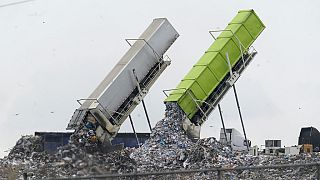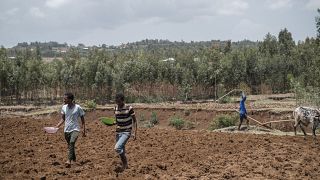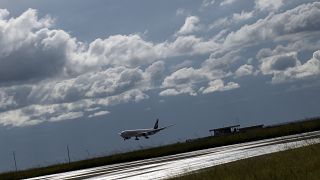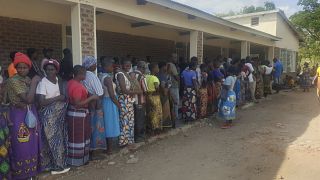Malawi
In central Malawi, the everyday life of Alefa Ofesa and Lloyd Phale work in their field changed two years ago when Alefa embarked on a project support and training to cope with erratic rainfall in the region.
The 42-year-old mother learnt how to plant seeds in two parallel rows, separated by rain collection channels, build terraces, contour ploughing, and construct check dams to slow down water flow and prevent soil from being washed away.
All of these methods help to maximize water efficiency. The project also encouraged the farmers to plant indigenous trees around the field which produce organic manure through composting and protect the field from floods during the rainy season.
The farming couple have been farming for over 20 years, but Alefa says the TRADE project (Transforming Agriculture through Diversification and Entrepreneurship Programme) has made a defence.
“The project has encouraged women to participate in agriculture. With the knowledge and the skills, they are sure and confident about what needs to be done to improve productivity, for example the double raw planting,” Ofesa says.
The TRADE project is implemented by the government of Malawi and supported by the International Fund for Agricultural Development (IFAD).
IFAD has been investing in rural women to help them address gender inequality.
The message on International Women’s Day from IFAD’s Vice President Geraldine Mukesima is that investing in gender equality and women’s empowerment is not only more urgent than ever but also an incredibly smart investment to generate economic growth, food security, income opportunities and better lives, particularly in rural areas where most of the world’s poorest live.
Indeed, gender inequality often results in a gender gap in productivity.
"Substantial gender gaps in productivity have arisen not because women are less efficient farmers, but because women experience inequitable access to land and to agricultural inputs", a 2019 IFAD report says.
One of the challenges in achieving gender equality by 2030 [Editor's note: SDG's objective] is a lack of financing, with a staggering US$360 billion annual deficit in spending on gender-equality measures.
Joint decision-making
Since Alefa undergone training, she shares her new knowledge with other women from her community.
“A lot of women here are now experts in farming activities and because of their profits, many have realized the importance of joining together,” she says.
The training has also produced changes in Alefa's working relationship with her husband.
Working together as equal partners the pair have seen an increase in productivity which has allowed them to earn more.
Indeed, the project trained families on how to make work-related decisions together.
Amos Mailosi who visits the couple on its farm is the regional environment and climate change officer for TRADE Programme: “One key thematic area that TRADE programme is promoting is the issue of gender and social inclusion. So, we are trying to empower women and men, and boys and girls, to be equally participating in the interventions. So that together they can realize the importance of joint decision-making at household level.”
Not only does her family have enough food for the whole year, but she can now also sell part of what she harvests, and she is planning to expand her business to sell at markets in nearby villages.
Alefa plans to use the additional income they earn for their children’s education and to purchase an ox cart for transportation.
Access to male family labour, Women’s limited use of agricultural implements and machinery and their limited access to high-value crops enterprise are some contributors to the gender gap in agricultural productivity in eastern Africa.












00:56
South Africa: At least 101 dead in Eastern Cape floods as rescue efforts continue
02:08
Gunman attack in north-central Nigeria: death toll climbs to 150
11:14
Rwanda Walks Away: what’s behind the Central Africa rift? [Business Africa]
00:24
Greenland and Iceland saw record heat in May
01:17
South Sudan flood threat returns
01:51
Somalia celebrates the International Day for Women in Maritime